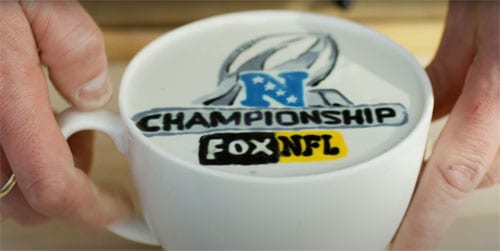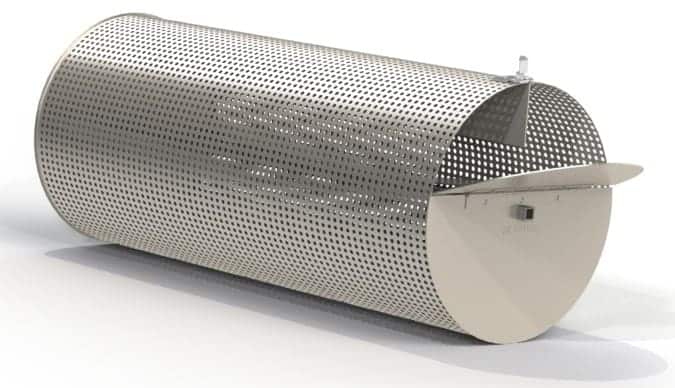
Generally a week doesn’t go by without us getting some questions related to getting registered or certified with the health department.
This an age old question, and while we don’t have any direct, step-by-step answers, as it’s complicated with every state and even every city possibly, and likely having a different set of regulations and red tape. I often wonder if pass and fail even depends on whether the health inspector got into a fight with his or her spouse that day and how difficult they want to make it.

Registering with the Health Department is not only possible, but is accomplished by most people who try with some obligatory hoop jumping and red-tape-cutting.
Common Questions that people ask...
1. Do people run businesses with RK Drums equipment?
The large majority in fact, do run businesses. An estimated 70% are doing coffee roasting for business or for profit. We’ve sold an estimated 5000 drums over the last several years, and many more since our founding in the year 2000 and the majority (60%-70%) that are very profitable.
2. Can I, and should I register with the health department?
This is really a question that only you can answer, as it depends on your intentions on roasting for profit, the scale of your operation, and your comfort with regulation. There are a large number of home roasters and micro roasters that choose not to undergo the health department process, especially in the beginning.
When you are just starting, and costs are high, and you’re unsure of your success or failure, some people choose to fly low and just keep their roasting a hobby in the beginning. Only roast for yourself, your friends and family….until money and the popularity of your coffee begins to soar.
When you have strangers calling and asking you for your coffee, and you begin to serve the general public then at that moment, by the sheer nature of it, you will have more money, time and patience to undergo the health department inspection process and be more confident that you have a viable business model that is worth registering.
3. Consider the point of the health department.
Obviously the point of the health department, at least in the traditional sense, is to protect public health. Whether you choose to register or not, you should always use common sense sanitary practices. Only use food grade stainless steel for anything that comes into contact with the coffee. (All RK Equipment is). Don’t use wood that will pickup bacteria. Wear a hair net, latex gloves and keep everything clean and sanitary every day. Using common sense to keep yourself and others safe is always key. Don’t get anyone sick and nobody should bother you.
4. Are businesses successful with RK?
Most are. For the most part, any coffee you produce with RK equipment will be second to none in your town. People generally will fall over themselves to get at your coffee. So even a mediocre effort will produce a growing client base that continues to grow. Try to get your coffee to your customer within 96 hours of the roast. Freshness is key to blowing away the competition and getting repeat orders.
5. Do people successfully register with the health department?
Yes. Many do. Many have done so. The rules and regulations vary from city to state and knowing all of them for every locale is a ridiculous endeavor. Here are some general, and hopefully universal things I’ve heard from folks who have undergone the process. I’ve heard it can take as little as a week to months to jump through the hoops.
6. Are there any tricks to getting registered with the Health Department?
Check to see if your state has “cottage craft” laws. This enables individuals to sell from their homes without the burden of regulation and inspections. This varies from state to state.
7. Consider Cottage Craft laws in your state.
Research Cottage Craft laws in your state. Some states have them, some don’t. This is a far less complicated method to get permission from the Health Department to get rolling. There are some basic restrictions, but it’s far less rigorous.
8. What things do I need to do to pass the health department inspection?
This varies in every jurisdiction. So it’s hard to say exactly. Some common sense sanitary methods are always a good start
1. Roast with latex gloves and hair nets, keep things clean always
2. Don’t allow the coffee to touch wood where it can become infested with bacteria
3. Always use food grade stainless steel for anything that comes into contact with coffee (All RK products are)
4. Roasting under an awning or covered enclosure is encouraged to keep flying objects out of the coffee (Think about birds flying over, or other unsavory objects blowing in the wind.)
5. If in a building, having a hot and a separate cold sink can be required.
6. Wash all clothing, towels and rags for each roasting/packaging session, as well as thoroughly clean other bacteria-harboring objects daily.
7. Store your raw and roasted coffee in locking bins, away from rodents or other insects. Keep your coffee in a dry clean storage space where mold is not present. The Rubbermaid bins at Wal-Mart are pretty great storage options.
Additional Notes and Tips
1. Make sure the Inspector knows you're preparing a dry good.
This varies in every jurisdiction. So it’s hard to say exactly. Some common sense sanitary methods are always a good start
Sometimes making sure the inspector knows you are roasting a dry good… without those pesky bacteria collecting liquids, can be an asset. Look to try to fall into a category of peanut roasters, or nut roasters and not coffee shops. (unless youre planning on selling the drink too)
Some jurisdictions don’t differentiate between a coffee shop (like starbucks) and a coffee roasting operation. They are vastly different and should be regulated differently. A coffee shop has milk and liquid coffee and other syrups and such that can get sticky and accumulate all kinds of nasty organisms.
Coffee is dry. The whole process of roasting is dry. We heat it up to 500F as well which kills anything within that coffee. Make sure your inspector knows you are working with strictly dry goods and you should fall under the category of something like nut and peanut roasters. Make sure they understand the difference. If you can get classified into this dry good type of category, then that should speed up and simplify the registration process.
In some places there isn’t a different roaster category, or for whatever reason they were forced to comply with the “coffee shop” category, which gets you into all kinds of restaurant-type regulations which are, and should be, much more strict (For example, the separate hot and cold sink subject listed above). As a roaster, you are merely converting and packaging a dry good, and trying to register into this category may make things easier. (In most cases, these hot and cold sinks would sit largely unused and without purpose, save for the washing of containers as needed.)
2. Mobilize your platform for getting into a different category.
Mobilizing the platform, say by mounting it to a trailer may put you into an entirely different category that is much less strict than, say, a brick and mortar business. In the southeastern USA, this place is infested by people who boil peanuts in a steel pot on roadside corners and serve to the public. I know most of them aren’t regulated, perhaps because they are mobile. They setup on the corner daily, and move the gear out every day. See if you can switch to this category if you’re having difficulty cutting red tape..etc. If I remember correctly, some business owners in Nevada skated through the health inspection by mobilizing the operation.
2. Eliminate BBQ Grill Confusion.
There is sometimes confusion that occurs when people see an actual barbecue grill. They can’t seem to get meat out of their head. We, in fact, only use it as a box to hold heat. Make sure the inspector knows it’s basically an oven, a box to hold heat, and not a dirty meat grill. Make sure that the inspector knows that the drum is Food Grade Stainless provided by RK.
This article may give you a couple of pointers and bargaining points that may make Health Department certification easier. If you do attempt the registration, let us know how your process goes!


